Physical, Cognitive, Emotional Stages & Coaching Impact
Coaching Young Athletes: Strategies for Maximizing Potential and Enjoyment
“As we coach young athletes, we’re not just training them for the game, but for life. Every session is a chance to instill resilience, foster growth, and ignite a lifelong passion for sports.”
– Coach Johnny

Support the JK Tribe with a Johnny’s Kidz, The Game Belongs to Them Hoodie
Introduction
Coaching young athletes effectively requires a deep understanding of their developmental stages.
As children grow, their physical, cognitive, and emotional changes significantly impact their sports participation.
By recognizing these phases, coaches and parents can tailor training to optimize growth and potential, enhancing performance and enjoyment.
Knowledge of these developmental transformations helps prevent injuries and mental burnout.
For example, younger athletes, with their more flexible cartilage and less dense bones, benefit from less physically demanding activities.
As they mature, their improved coordination and cognitive abilities allow for more complex strategies and longer training sessions.
It’s crucial to consider not just the physical but also the cognitive and emotional development of young athletes.
Understanding how they perceive teamwork and competition and respond to outcomes helps nurture their skills and a positive and resilient attitude toward sports.
This holistic approach ensures they grow as both athletes and individuals.

“No matter what your ability is, effort is what ignites that ability and turns it into accomplishment.”
– Carol S. Dweck, psychologist and author of “Mindset: The New Psychology of Success”
Understanding Developmental Stages
Effective coaching in youth sports hinges on understanding children’s developmental stages.
This knowledge allows for tailored coaching approaches that enhance growth and learning, vital for coaching young athletes.
These stages are segmented into three main areas: physical, cognitive, and emotional development.
Each impacts how children interact with sports and their environment.
Physical Development
Physical Development involves the body’s structural and functional changes.
In early childhood, this includes rapid growth and motor skills refinement.
Children’s strength, coordination, and endurance improve as they age, which is crucial for sports success.
For example, complex sports maneuvers may challenge younger children, while older children handle these more easily due to advanced motor skills.
Recognizing these capabilities is essential for setting realistic expectations and designing training programs that are both challenging and achievable.
Cognitive Development when coaching young athletes.
This refers to the maturation of intellectual abilities and processing skills, which are crucial in sports.
These abilities, including attention, memory, and problem-solving, enable athletes to grasp game strategies, follow coaching instructions, and make quick decisions.
As children progress from Piaget’s preoperational stage to the concrete operational stage, their capacity for understanding complex and abstract concepts strengthens, thus allowing them to engage more deeply with sports strategies.
Emotional Development
Influencing how children handle wins and losses, interact with teammates and coaches, and cope with competition pressures is vital to emotional development.
Coaches sensitive to these emotional stages can nurture young athletes to develop resilience, sportsmanship, and a team-focused attitude.
For instance, younger children may need more explicit encouragement and support to manage disappointment and build confidence.
On the other hand, older children can benefit from more sophisticated emotional regulation techniques.
By leveraging an understanding of these developmental categories, coaches and parents can create environments that foster the comprehensive growth of young athletes
This helps them realize their full potential in sports.
This tailored approach boosts athletic performance and contributes significantly to the child’s holistic development.
“”Good, better, best. Never let it rest. Until your good is better and your better is best.”
– Tim Duncan, Former Professional Basketball Player, All-Star, and Hall of Famer
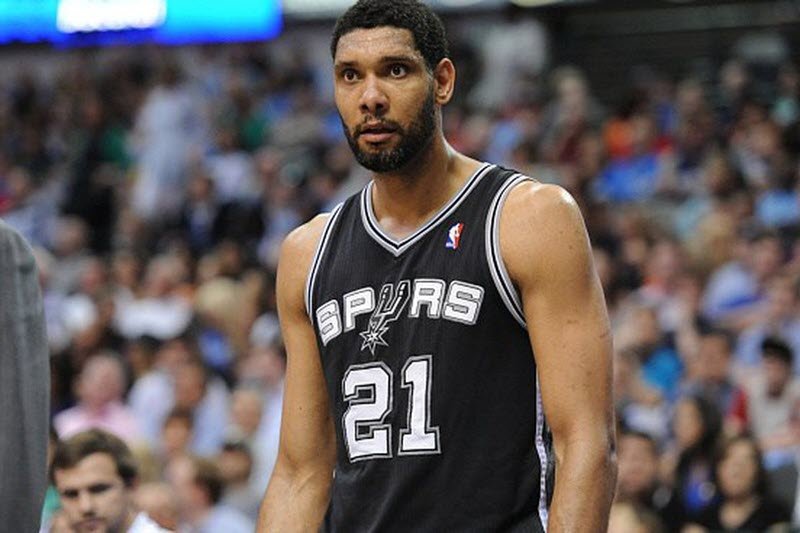
Physical Development in Young Athletes
Physical development in children is marked by rapid growth and crucial changes, significantly impacting their involvement in sports.
Younger children, for instance, typically have less muscle mass and bone density, which influences their strength and endurance.
Their muscle development and coordination improve, greatly enhancing their capacity for more demanding sports activities.
Aligning physical activities with a child’s developmental stage is essential to ensure safety and effectiveness.
For preschoolers, the focus should be on basic motor skills such as running, jumping, and throwing.
These skills are ideally developed through unstructured play and structured sports.
Gymnastics and swimming, for example, improve coordination and balance without overburdening their developing bodies.
As children enter middle childhood, typically between the ages of 6 and 10, they are ready for more organized sports.
Soccer, baseball, and martial arts demand complex movement patterns and introduce teamwork and strategy as good starting points.
For adolescents experiencing significant physical growth spurts, sports that require increased strength, speed, and agility, such as basketball, football, and track and field, become appropriate.
These sports suit their developmental stages, promote growth in physical abilities, and enhance sports performance, perfectly aligning with coaching young athletes.
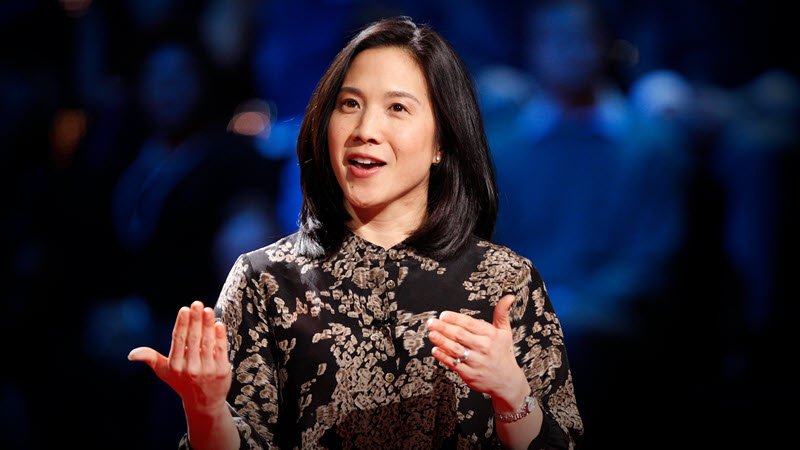
“Grit is living life like it’s a marathon, not a sprint.”
– Angela Duckworth, psychologist and author of “Grit: The Power of Passion and Perseverance”
Cognitive Development in Young Athletes
Cognitive development in children encompasses the progression of thinking, learning, and problem-solving abilities, all of which are critical skills directly applicable to sports.
As children mature, their mental capabilities expand, enabling them to absorb more complex information, analyze situations, and develop strategies.
Influence on Learning New Skills
Children’s cognitive growth profoundly influences their ability to learn new sports skills.
For instance, younger children may struggle with understanding the tactical aspects of team sports due to their limited abstract thinking abilities.
However, as they grow, especially as they enter Piaget’s concrete operational stage (typically around age 7 to 11), their capacity to grasp complex and abstract concepts like game tactics and strategies increases.
This developmental milestone enhances their comprehension and application of coaching instructions during training and games.
Understanding Game Rules, Strategy, and Teamwork
Cognitive development also plays a crucial role in children’s understanding and implementation of game rules, strategy, and teamwork.
As cognitive functions mature, children can better anticipate the actions of others, understand the flow of the game, and contribute more effectively to team efforts.
They evolve from merely reacting to physical stimuli to planning actions based on an understanding of the game’s objectives and their teammates’ roles, thereby enhancing their strategic play.
Tips for Enhancing Cognitive Skills Through Sports
Coaches can support cognitive development with several strategies:
- Progressive Learning: Start with simple rules and concepts, gradually introducing more complex strategies as cognitive abilities develop.
- Questioning Techniques: Use open-ended questions to encourage athletes to think critically and articulate their understanding of the game.
- Visualization and Mental Rehearsal: Encourage athletes to visualize their movements and strategies, improving their anticipation and reaction during gameplay.
- Interactive Drills: Design drills that require quick decision-making to enhance problem-solving skills and adaptability.
Understanding and supporting cognitive development allows coaches to improve young athletes’ learning and performance in sports significantly.
This tailored approach enhances physical performance and nurtures mental and strategic thinking capabilities, which are key in coaching young athletes.
“I believe that’s what coaching is all about, helping young people have a chance to succeed and to be as good as they can be.”
– John Wooden, Legendary UCLA Basketball Coach
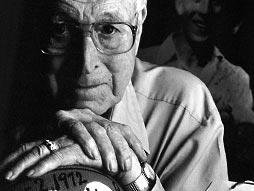
Emotional Development in Young Athletes
Emotional development is a pivotal aspect of a child’s growth.
It encompasses how they perceive, express, understand, and manage their feelings, ultimately shaping their social interactions and self-awareness.
As children navigate various emotional milestones, their ability to interact with others and manage complex emotions evolves.
This progression is crucial for forming personal relationships and effective teamwork.
Sports serve as a transformative tool in enhancing emotional intelligence in young athletes.
Participation in sports teaches children to manage emotions such as excitement, disappointment, and frustration within a structured environment.
This journey also promotes empathy as they learn to understand and respond to the emotions of teammates and opponents.
Additionally, sports require emotional regulation to maintain focus during practice and games, thus strengthening emotional resilience.
Coaches play a critical role in guiding young athletes through these emotional processes.
Effective coaching strategies that foster emotional development include:
- Positive Reinforcement: Acknowledging and praising efforts, not just outcomes, enhances self-esteem and motivation.
- Emotion Coaching: Teaching athletes to recognize and articulate their emotions helps them better manage their responses.
- Setting Emotional Goals: Encouraging athletes to set goals for emotional management, such as remaining calm after a mistake or supporting teammates, promotes emotional growth.
- Modeling Emotional Intelligence: Demonstrating mature handling of emotions, such as expressing disappointment constructively or celebrating others’ successes, sets a positive example.
- Encouraging Team Support: Creating an environment where teammates emotionally support one another strengthens social bonds and improves team performance.
Integrating these strategies into coaching can significantly impact your athletes’ emotional development.
You should aim to equip them with essential emotional intelligence skills that will benefit them personally and professionally throughout their lives.
Integrating Developmental Knowledge into Coaching
Integrating developmental knowledge into coaching is crucial for creating a supportive and effective environment for young athletes.
Understanding the developmental stages of children enables coaches to tailor their approaches, significantly enhancing both learning and performance.
Practical Tips for Adapting Coaching Styles:
- Assess Developmental Stage: Begin by assessing the athletes’ physical, cognitive, and emotional stages. This assessment helps determine the complexity of instructions, the suitability of physical activities, and the best approaches for managing emotions during play.
- Age-Appropriate Drills: Design drills appropriate for the athletes’ developmental stage. For younger children, focus on simple, fun, and foundational skills. Introduce more complex drills for older children that challenge their strategic thinking and physical capabilities.
- Adapt to Learning Styles: Acknowledge that children have different learning styles. Some may be visual learners, while others prefer verbal instructions or learning by doing. Tailoring coaching methods to these styles can significantly enhance the learning experience.
- Importance of Communication Styles: Effective communication is key to successful coaching. For younger children, use simple and clear language with visual aids to enhance understanding. Teenagers employ more complex language and foster dialogue, encouraging them to ask questions and express themselves freely.
Benefits of Positive Reinforcement and Constructive Feedback:
- Positive Reinforcement: Acknowledge and praise an athlete’s efforts and improvements, not just their successes. This encourages continued effort and supports a positive self-image.
- Constructive Feedback: Focus on giving specific advice on improving rather than just pointing out what went wrong. Ensure that feedback is immediate and delivered in a way that athletes understand and can act upon.
By understanding and implementing these strategies, coaches can improve athletes’ performance and contribute positively to their overall development.
This tailored approach ensures the sports experience is enjoyable and growth-promoting, laying a strong foundation for lifelong skills and a lasting love for the game.
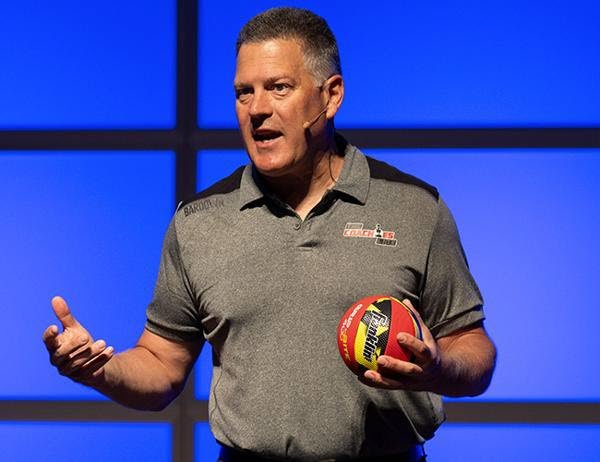
“It’s not about winning games. It’s about developing players so that they can keep winning games in the future.”
– Ken Martel, Technical Director, USA Hockey’s American Development Model
Challenges and Considerations in Coaching Young Athletes
Coaching young athletes through varying developmental stages presents unique challenges and significant ethical considerations.
Coaches must navigate the complexities of physical, cognitive, and emotional growth differences among athletes.
This can significantly impact each child’s response to training and competition.
Common Challenges: A major challenge is ensuring that training and competition are appropriate for each developmental stage.
For instance, younger children might require simpler physical coordination drills that older children can easily perform.
Coaches also need to adjust their communication strategies to match the cognitive development levels of their athletes, ensuring that instructions are comprehensible and actionable across different age groups.
Additionally, managing the emotional variability of young athletes—such as temper tantrums in younger children or heightened sensitivity in teenagers—demands considerable patience and understanding.
Ethical Considerations: Ethically coaches are responsible for ensuring a safe, positive, and inclusive environment that promotes fair play and sportsmanship.
This responsibility extends beyond preventing physical harm; it includes safeguarding the psychological well-being of athletes by preventing favoritism, bullying, and undue pressure.
Coaches must balance competitiveness with each child’s fundamental right to participate in and enjoy sports, regardless of skill level.
Furthermore, maintaining transparency with parents about their child’s progress and the coaching methods is crucial for preserving trust and ethical integrity in the coaching relationship.
Navigating these challenges and considerations requires coaches to be well-versed in developmental psychology, possess effective communication skills, and uphold the highest standards of integrity and professionalism.
By meeting these demands, coaches can significantly enhance the sports experience for young athletes, fostering athletic talent, character, and resilience.
Conclusion: Enhancing Coaching Through Understanding Child Development
Understanding child development is crucial for effectively coaching young athletes.
Coaches can tailor their training methods, communication styles, and motivational techniques by integrating knowledge of children’s physical, cognitive, and emotional growth stages.
This personalized approach improves athletic performance and enriches the overall sports experience, ensuring it is appropriate and beneficial for young participants.
Knowledge of physical development helps coaches create safer and more effective training regimens that accommodate the athletes’ growing bodies.
Recognizing cognitive growth patterns enables coaches to devise understandable and engaging strategies for different age groups.
Furthermore, being aware of emotional development aids coaches in supporting young athletes in managing their emotions, fostering resilience, and building team camaraderie
These are essential for development both on and off the field.
Coaches are encouraged to see learning about child development as a continuous process that enhances their effectiveness and responsiveness.
Engaging in ongoing education through workshops, certification courses, and relevant literature equips coaches with the skills and insights to adapt to their athletes’ evolving needs.
Consequently, committing to this continuous learning and adaptation allows coaches to optimize training outcomes and positively influence young athletes’ personal growth and a lifelong love for sports.
This fosters a nurturing environment where every child is seen, understood, and guided toward achieving their full potential.
Join Us on the Journey to Excellence
Are you ready to join Coach Johnny on his coaching journey and take your coaching skills to the next level?
Dive deeper into the world of child development and bring out the best in your young athletes.
Explore our resources, attend workshops, and join a community of coaches committed to continuous learning and improvement.
Let’s work together to ensure every young athlete reaches their full potential in sports and life.
Start your journey today—because great coaching begins with understanding!
“The most important attribute a player must have is mental toughness.”
– Mia Hamm, Former Professional Soccer Player
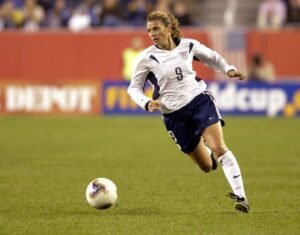
Further Reading/Resources on Coaching Young Athletes.
Several resources, including books and websites, are available to deepen your understanding of child development in sports contexts. Here’s a curated list to guide your further exploration of this essential topic:
Books
- “The Sports Gene: Inside the Science of Extraordinary Athletic Performance” by David Epstein
- It offers insight into the genetic factors and physical development contributing to athletic performance and is useful for understanding physical differences in young athletes.
- “Mindset: The New Psychology of Success” by Carol S. Dweck
- While not solely about sports, this book provides an in-depth look at how mindset affects learning and development, including in sports.
- “Changing the Game: The Parent’s Guide to Raising Happy, High-Performing Athletes, and Giving Youth Sports Back to Our Kids” by John O’Sullivan
- Focuses on how parents and coaches can help develop positive sporting environments that prioritize child development.
Articles
- “The Psychology of Youth Sports: When playing the game fosters positive outcomes for kids.” from Psychology Today
- Discusses various psychological aspects crucial to coaching, including the impact of cognitive and emotional development on sports performance.
Websites
- Positive Coaching Alliance (PCA) – www.positivecoach.org
- Provides resources and training for coaches, parents, and administrators to ensure a positive, character-building sports experience for all youth.
- The Aspen Institute’s Sports & Society Program – www.aspenprojectplay.org
- It offers comprehensive insights and strategies for building healthy communities through sports, focusing on the developmental stages of youth sports.
- National Alliance for Youth Sports – www.nays.org
- A resource center for youth sports parents and coaches, focusing on education, research, and improving youth sports programs and policies.
These resources will provide valuable knowledge and practical strategies to enhance your understanding of how child development impacts sports coaching.
Whether you are a coach, a parent, or an educator, these materials can help create a more supportive, effective, and developmentally appropriate sports environment for young athletes.
Moreover, they foster an atmosphere where growth and learning are prioritized.
Join the JK Tribe
Coach Johnny is a youth sports coach with over 30 years of experience and continues to coach various sports across different age groups (pre-high school) for all genders. Additionally, he founded Johnny’s Kidz and the JK Tribe. If you would like to support his journey and become a Tribe member, please reach out and Buy Coach A Cup of Coffee. Lastly, remember, The Game Belongs to Them!
